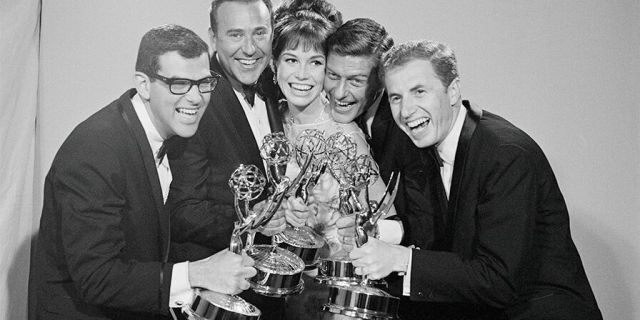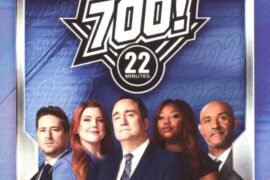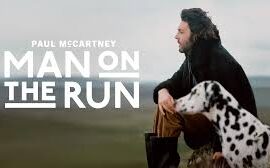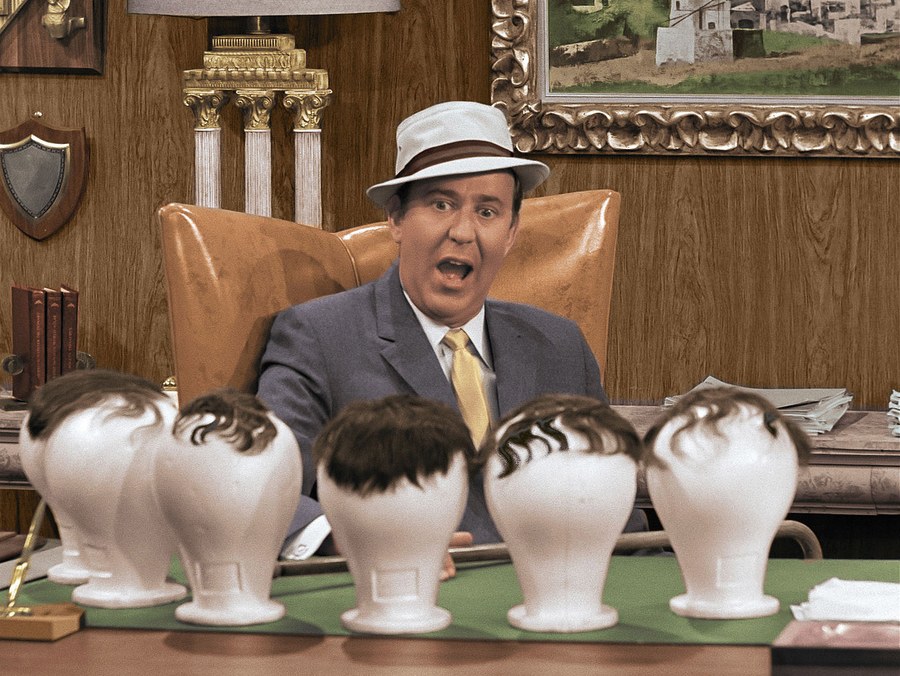
Carl Reiner, who passed away Monday at 98, wrote books well into his nineties. There was, “I Remember Me,” then, “I Just Remembered” and a third biography, “What I Forgot to Remember.”
“I don’t know what to do now,” he told his friend of nearly 70 years, Mel Brooks. “You’re too busy to die,” replied Brooks, now 93.
So Reiner wrote a book called, “Too Busy to Die.”
If The Beatles wrote the soundtrack of the life of many Boomers, Reiner wrote the comedy bible. He handed down the commandments for modern straight men on Sid Caesar’s Your Show of Shows and Caesar’s Hour in the ’50s as well as his hilarious comedy albums with Mel Brooks as The 2000 Year Old Man.
With The Dick Van Dyke Show, he did the same thing for the modern sitcom. His guiding principle as a writer and as a showrunner was simple: “Never Lie.” He based every episode on truth, not jokes. He would ask his writers and actors and probably carpenters and grips what was going on in their lives — then he would turn these anecdotes into scenes and episodes. Reiner and his wife Estelle really did live in New Rochelle, right next door to a real life Jerry and Millie. He wrote what he knew best, and while he may have exaggerated a little, he told the truth.
No wonder then, that he was so gutted these past four years by a man he saw as the liar in chief. Reiner, who had served in the army during World War II could not stomach the wilful devaluation of the country he loved. He hammered away at Trump daily on Twitter, a good soldier to the end. Among his most recent messages:
advertisement
In the mid-’60s, Reiner was well cast as an everyman under siege in “The Russians Are Coming, The Russians are Coming,” one of Norman Jewison’s most enjoyable feature films. There are gems among his own directing efforts, including his movies with Steve Martin (“The Jerk,” “The Man with Two Brains,” “All of Me”) and his sweet effort to help John Candy lose weight and retain laughs in “Summer Rental.”
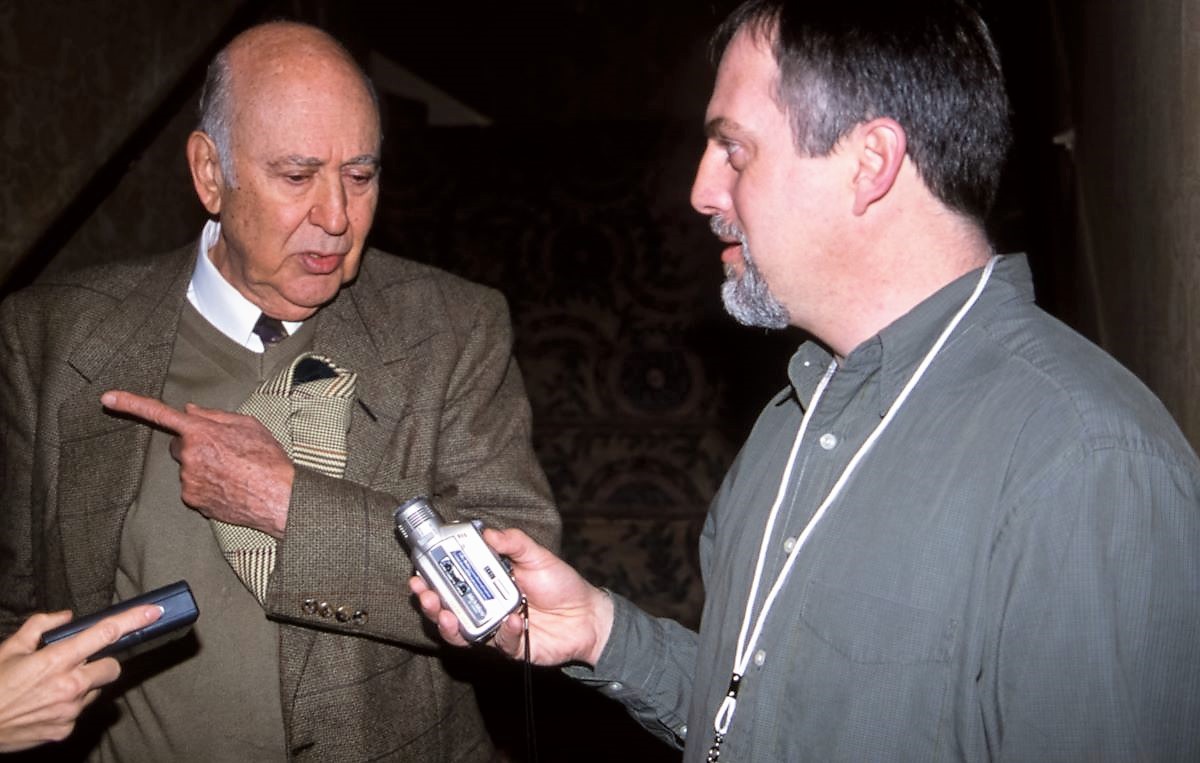
They should probably burn every print of his largely forgotten and politically incorrect 1969 feature, “The Comic,” starring Van Dyke, except it would break every silent film fan’s heart.
In 2004, he wrote and starred in The Dick Van Dyke Show Revisited. The premise of the special had vain showbiz tyrant Alan Brady (Reiner) asking his former Head Writer Rob Petrie (Van Dyke) to pen his obituary. Not because he was dying; he just wanted to hear it. That the idea was funnier than the execution didn’t matter; it was heartwarming to have Rob and Laura and Sally and Millie and even Alan Brady all back in New Rochelle again.
Still, no one ever wanted to read — or write — Carl Reiner’s obituary.
I had the great pleasure to interview him on a few occasions. On one Television Critic’s Association press tour, we walked and talked after a session and I asked him to name his favourite film by his son Rob Reiner.
“The Princess Bride,” he immediately answered. He practically beamed with pride and mentioned favourite scenes in other films by his son. (Around the same time I asked Rob to pick his favourite among his dad’s work. “All of Me” was the answer; he was just as proud of his father.)
Another time, at a film premiere in Los Angeles, he was walking with his wife Estelle. I asked if I could take their picture. I remember Reiner being very protective, but finally relenting when he realized I wasn’t trying to sell the photo to anybody. Estelle was the funny one in the family, he would always insist. She died in 2008 after 64 years of marriage.
That wasn’t the relationship that lasted the longest. That was between Reiner and Mel Brooks. If you haven’t seen it yet or in a while, seek out the early episode of Comedians in Cars Getting Coffee that features the two legends with their TV trays, tucking into their nightly ritual of watching Wheel and Jeopardy. It is a trip that — like the two of them — never gets old.
Earlier in June, Reiner and son were featured in conversation on CBS’s Sunday Morning. Former New York Times TV columnist Bill Carter interviewed him late last year, and told me Reiner was still as sharp as a tack. The multiple Emmy and Grammy-winner also recently sat down with Dan Rather for “The Big Interview.”
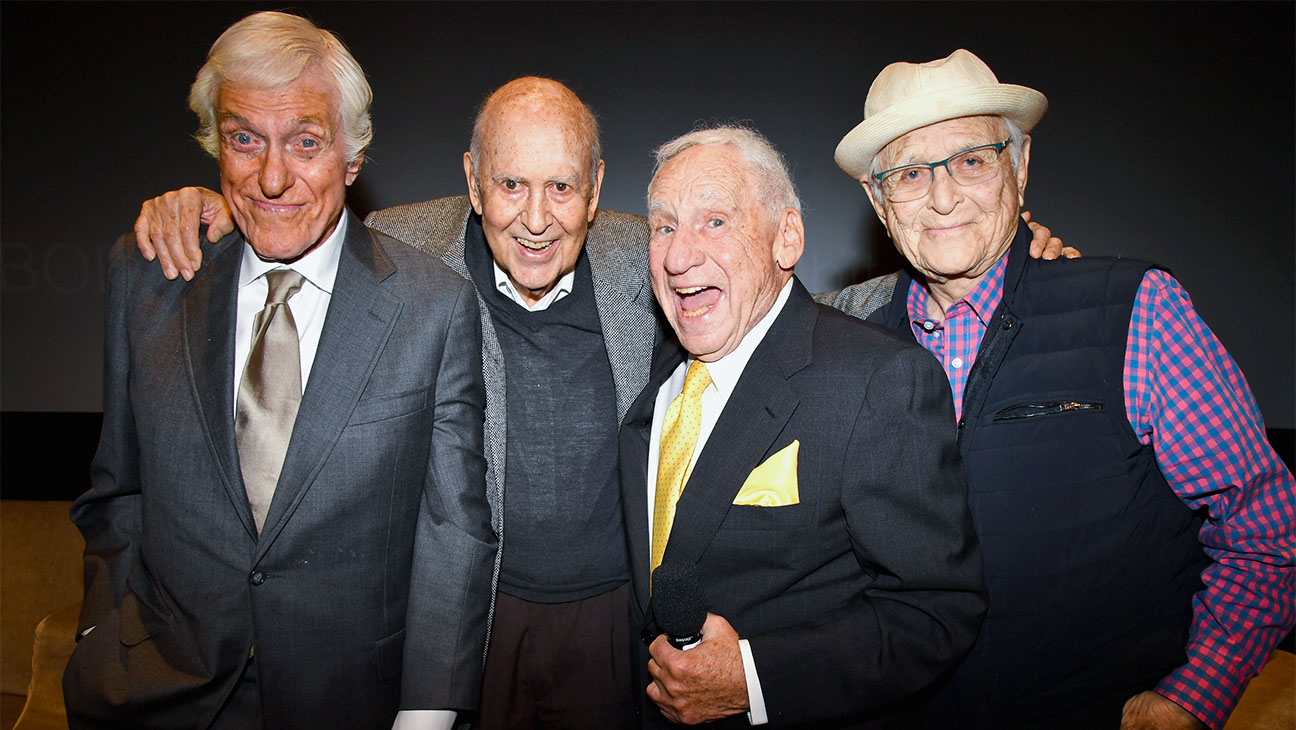
Reiner tried his best to stay too busy to die. He set a goal a few years ago to live until November of this year so he could see Donald Trump heaved out of office. He missed his deadline by a little over four months, but if hatred of Trump can extend one’s life, let’s celebrate that the comedy legend made it to the mountain top. Everybody needs a dream, and seeing truth triumph over lies looks good on any horizon.
Reiner saved one of his most touching and heart-felt messages for one of his last tweets. This appeared Saturday:
The last time I interviewed Reiner was two years ago. It was for a story that ran in The Toronto Star to coincide with the release of some newly colourized episodes of The Dick Van Dyke Show. Reiner, through CBS, agreed to the interview as long as it was in an email format — his typing being better than his hearing.
That entire interview follows, below. But first, condolences to his children and grandchildren, Brooks, Van Dyke, the entire comedy community and generations of writers and performers inspired by his genius.
My question for you: do you think color makes The Dick Van Dyke Show any more or less funny?
CARL: Color doesn’t make The Dick Van Dyke Show more or less funny, it remains as funny as it is. As a matter of fact, when we first were doing the show, they asked us if we wanted to do it in color and we said, “How much does it cost?” They said $6,000 an episode, and we said, we’ll never make a profit on this, so we decided to do it in black and white. But that’s the only reason it’s not in color.
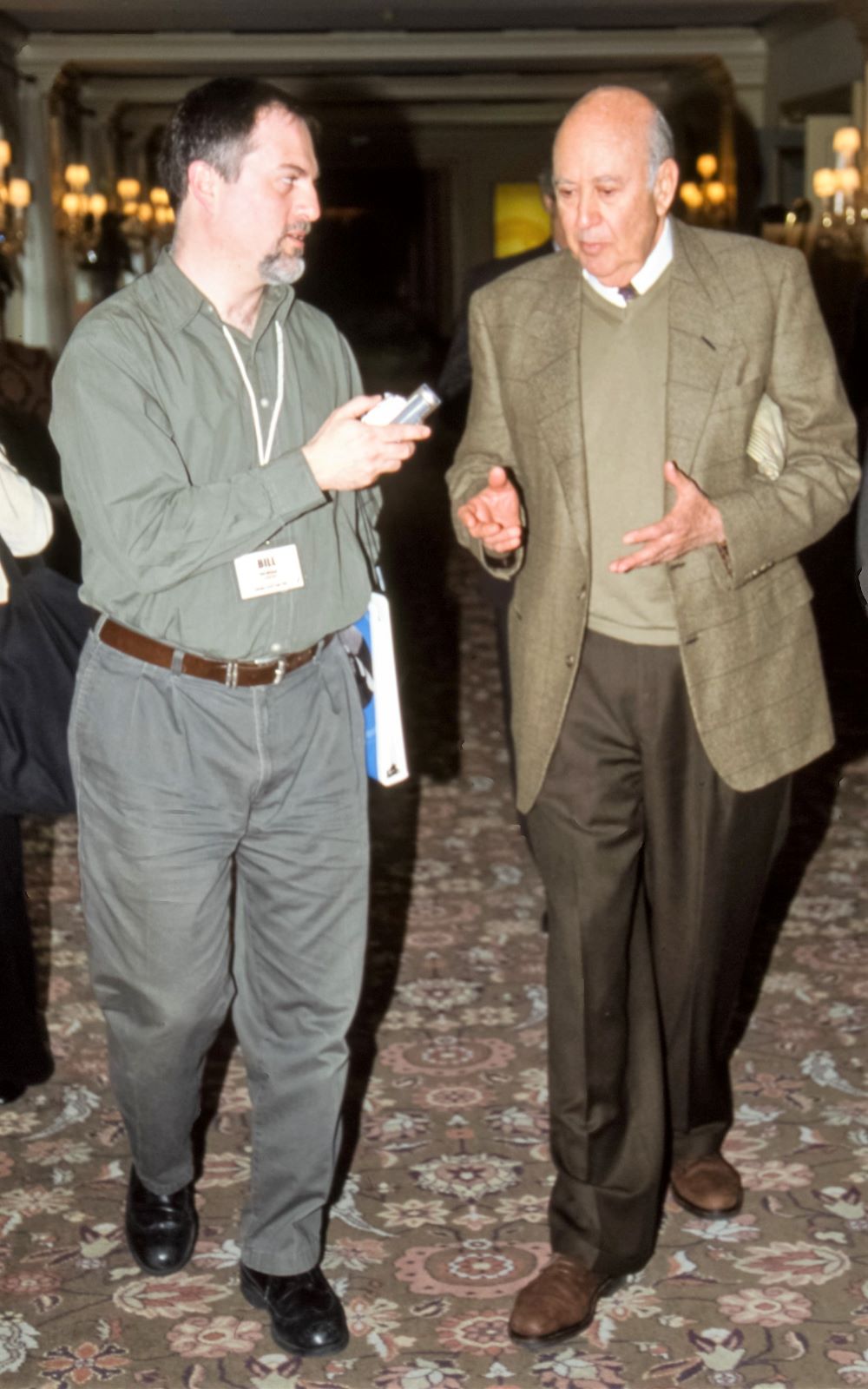
Do you think some episodes of the series call out for color more than others? (I think this is especially true of the Christmas episode, or that final western episode, but maybe you disagree).
CARL: We live in color, so anything that’s on television that’s in color is natural to us. Black and white is not natural. I’m going to be very happy to see it in color. I saw it in color originally.
Are you planning to colorize more episodes of The Dick Van Dyke Show? Any hints as to what episode might be next?
CARL: I’m hoping they colorize all of the episodes. When we first did the show, we said, this show could last forever. We assiduously stayed away from slang of the day, politics of the day, and I said at the time, this may live forever if we don’t use slang. So I’m very happy it’s going to be in color, because we’re living in color.
Do you think, say, your friend Mel Brooks’ film “Young Frankenstein” would have been as effective in color as it was in black and white?
CARL; I see Mel Brooks every night, he’s in color in person. He’s hilarious. In black and white I wouldn’t laugh so much. I’d worry, I’d say, where’s his color? No, his pictures are funny because they’re funny, not because they’re in color.

Were you tempted to shoot the fifth season in color in 1965-66?
CARL: Yes, we were asked to do that, and I said, it’ll stick out, it won’t be part of the set. So we decided not to do it.
Is it true that in 1966, CBS wanted to continue the series another couple of seasons, shooting the new episodes in color?
CARL: Yes, it is, they asked us if we would, and we were all going on to do other things. We also felt that we were starting to repeat ourselves, and we said, let’s go out strong. We saw the end of the tunnel, we ran for it, and we had 158 shows, that’s a lot of shows. Today, they do like 12 a year, we did 28, I think, or 30.
Do you think the age difference between Moore and Van Dyke would have been more pronounced in color than in black and white?
CARL: (laughs) No, not at all. As a matter of fact, I saw it in color and they looked so much better in color. I know them in color.
Do you have any kind of Canadian connection? Did you ever shoot any of your films in Canada? Any memories, perhaps, of working with beloved Canadian John Candy on “Summer Rental”? Or with Norman Jewison in “The Russians Are Coming…”?
CARL: I love both Norman Jewison and John Candy. John Candy was a force of nature, he was one of the sweetest human beings ever. And he knew he wasn’t going to live long, that was very sad, because he wasn’t eating well. When we did “Summer Rental” together, I put him on the Pritikin diet, and he was eating very well for a while, and then he fell off it, he bought tons of shrimp.
As far as the Canadian connection goes, when I did “Bert Rigby, You’re a Fool,” I needed some English-looking areas, and we went to Montreal and shot some of the scenes there, approximating what it would look like in England.
Who is your favorite Canadian?
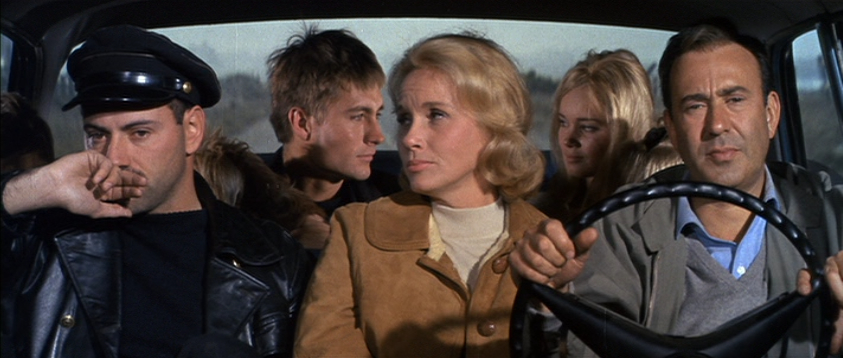
CARL: I would have to say it’s Norman Jewison. He gave me my first part as a leading man, and he gave me Eva Marie Saint to play opposite. I thank him to this day for that. And he also has a farm where he grows grain for pancakes and maple syrup trees, and he just sent me my Christmas package, so I thank him for that every year.
Do you watch “Young Sheldon” and does it make you think of Sheldon Leonard?
You know something, I’m so glad you asked that question. I’ve never seen “Young Sheldon,” and now I’m going to watch it to see if it reminds me of Sheldon Leonard, one of the dearest men I ever knew.
Are you writing another book? I really enjoyed “I Just Remembered.”
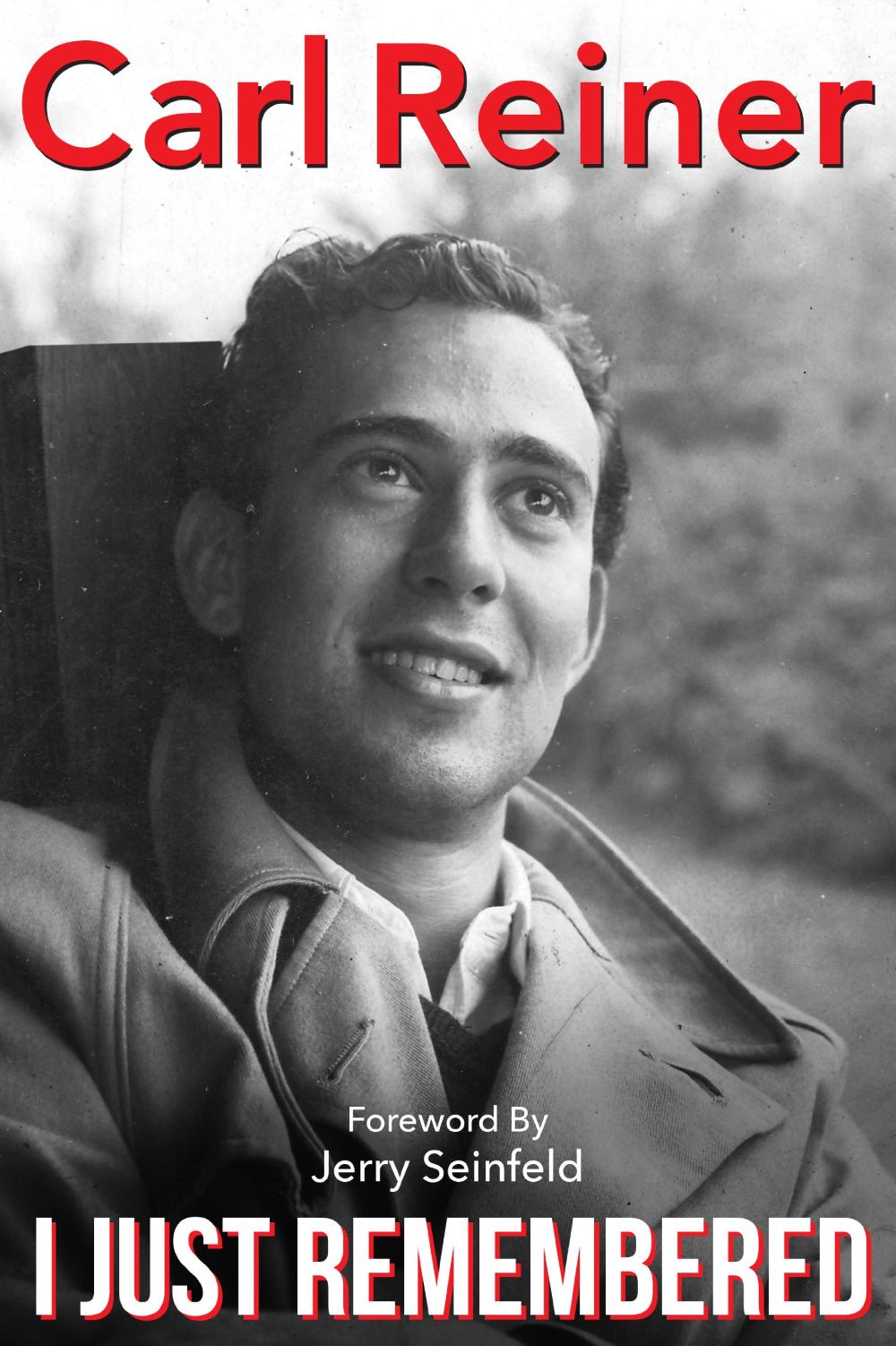
CARL: “I Just Remembered” was way back. The first book was “I Remember Me,” the second biography was “I Just Remembered,” a third biography was “What I Forgot to Remember,” and a fourth one that, when I said to Mel Brooks, ‘I don’t know what to do now,’ he said, “You’re Too Busy to Die.” And that one, “Too Busy to Die,” is out now. And I’ve also got three more books coming. One is called “The Rise and Fall and Rise and Fall and Rise and Fall and Rise of Radio,” the history of radio from the crystal set that I remember my father built. The other two books are every movie I’ve ever seen since I’m four years old, including photos of movie posters and commentary, there are 400 pages in each book. Those will be out in another month or two or three. And my favorite book is just finished. It’s called “How to Live Forever.” I wrote it with a Pakistani man, Sumwon Hoohaz. It’s 233 pages and it tells you how to live forever. All I can tell you is the first line of the book: Find a project, work on it, improve it, when you approve of your improvements start a new project. It’s a line that’s never finished, the sentence that never ends, it goes for 233 pages, and it’s true, if you do it, you’ll live forever. And it’s free with the other books.
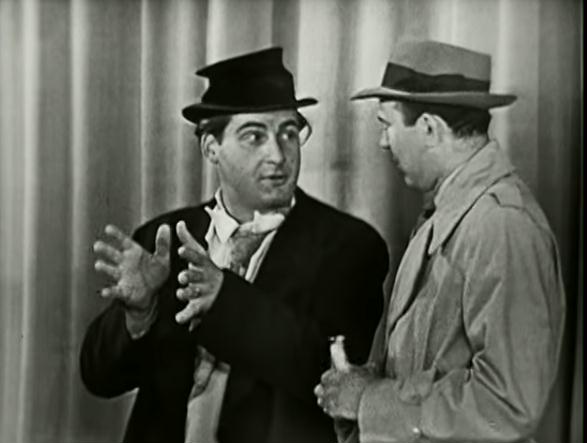
Turner Classic Movies just showed “My Favorite Year” the other night. Was that time on those Caesar shows as magical and romantic and insane as that film makes it all out to be?
CARL: No. No, I wasn’t happy with that film, it went way past what we did, it wasn’t at all what it was about, they had gangsters shooting — you know, we did gangster shows once in a while, and one gangster called us and said, “You know, I loved that show.”
Finally, what do you and Dick Van Dyke and Mel Brooks drink, and where can I get some?
CARL: When I did drink, I drank beer, and that was about it. Mel Brooks is not a drinker. Dick Van Dyke was a drinker, way back, and he’s been a tea totaler for a hundred years. Steve Martin said that the single most talented man ever in show business is Dick Van Dyke. I agree.
